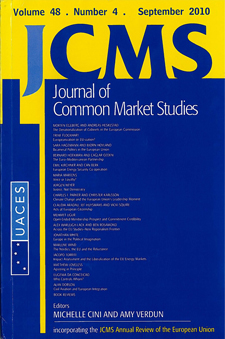
Multidimensional Well-being and Regional Disparities in Europe
Using data from the OECD Regional Well-Being Index – a set of quality-of-life indicators measured at the sub-national level – we construct a set of composite well-being indices. We analyze the extent to which the choice of five alternative aggregation methods affects the well-being ranking of regions. We find that regional inequality in these composite measures is lower than regional inequality in real GDP per capita. For most aggregation methods, the rank correlation across regions appears to be quite high. It is also shown that using alternative indices instead of GDP per capita would only have a small effect on the set of regions eligible for aid from EU Structural Funds. The exception appears to be an aggregation based on how individual dimensions relate to average life satisfaction across regions, which would substantially change both the ranking of regions and which regions would be eligible for EU funds.





